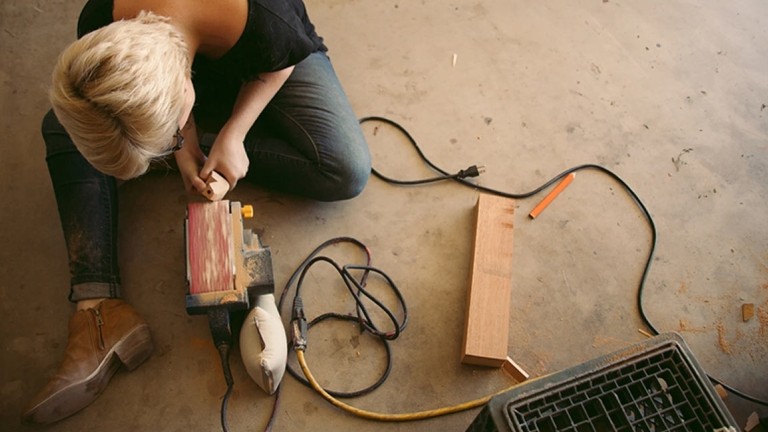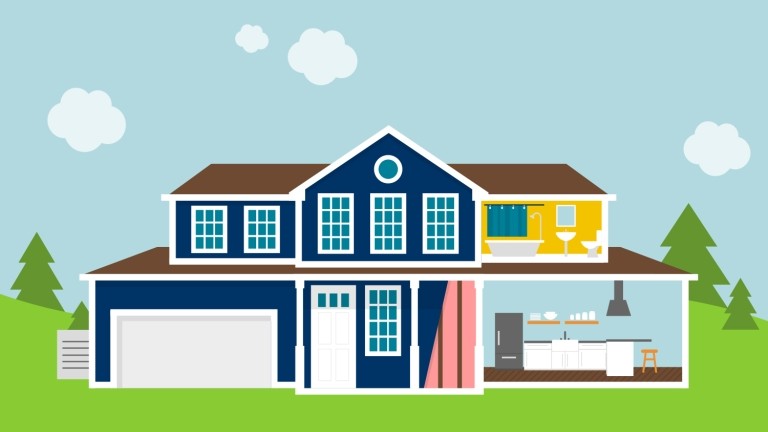VA Loans: bringing home ownership to Oregon’s veterans and active military personnel
The U.S. Department of Veterans Affairs (VA) Loan was designed in 1944 as part of the G.I. Bill to offer mortgage options to eligible American veterans and their spouses. Since the end of WWII, the VA loan program has helped millions of veterans acquire private home loans from lenders like OCCU.
There are almost no mortgage loans available today that do not require a down payment, which makes VA loans particularly attractive. Combined with the fact that they also do not require mortgage insurance, this makes the initial cost of getting a VA loan significantly lower than either conventional or FHA loans, and saves VA borrowers thousands of dollars over the course of the loan.
The VA allows veterans 103.3 percent financing on purchasing a primary residence, and up to $6,000 for energy-efficient improvements. Because there is no monthly PMI, more of the mortgage payment goes directly toward qualifying, which makes it possible to get a larger loan for a lower payment.
The VA also assists veterans when life throws complications in the way of making mortgage payments. If borrowers find themselves in financial difficulty, the VA may negotiate with the lender on the veterans’ behalf in order to come up with a repayment plan that will keep the borrowers out of foreclosure.
It is important to note that VA loans do have a one-time VA Funding Fee. The amount of this fee is determined by the amount of the down payment and the type of veteran or servicemember who is applying. The fee is reduced, for example, if the borrower makes a 10 percent down payment. Reservists and National Guard members pay a slightly higher fee than active-duty service members. The fee is waived for veterans who receive disability compensation.
Also, while the VA does not require a minimum credit score to qualify for a loan, lenders do have basic minimum credit score requirements. This varies by lender. Borrowers must also prove to the lender that they earn an income sufficient to repay the loan and that they don’t have large amounts of outstanding debt. But VA guidelines allow lenders to look at the overall picture, and to make exceptions that other types of loans don’t allow. For instance, veterans, surviving spouses and service members may qualify for a VA mortgage even after filing for bankruptcy or experiencing a foreclosure.
VA mortgages are available to qualified military veterans and active duty service members, as well as reservists and National Guard members. Spouses of military members who died while on active duty or because of a disability that they received while in service are also eligible to apply. If you believe you qualify for a VA loan, you must receive a Certificate of Eligibility (COE) to verify to your lender that you are eligible for a VA-backed loan. Once you have gathered the evidence you need, you can apply for the COE online at the eBenefits Portal or through your lender during the pre-approval process. If you would like to speak to one of our mortgage loan officers about government-insured loan options, then feel free to contact us today,
Are there disadvantages to VA loans?
VA loans often have lower interest rates than conventional loans and give lenders more flexibility in considering debt-to-income ratios and less-than-perfect credit scores. Because veterans receiving this type of loan also don’t have to pay PMI, and there are no prepayment penalties, a VA loan is generally the best option for homebuyers who are veterans, active military personnel, reservists or surviving spouses. However, there are some things to know when you’re considering a VA loan.
Remember, VA loans have a one-time, mandatory VA Funding Fee that conventional loans and FHA loans don’t have. This fee goes directly to the VA to help fund the loan program for future generations. All VA borrowers must pay this fee, except for veterans with service-related disabilities. The fee increases each time you use your VA loan eligibility, so your second or third VA loan will cost you more in fees than your first. However, the fee can be rolled into the loan itself so that you don’t have to pay for it up front.
VA loans also have occupancy requirements—you will be expected to live at the property you purchase. Therefore, VA loans cannot be used to purchase or refinance vacation or investment homes. Generally, a borrower must certify that they will personally occupy the property as a primary residence within 60 days of purchase. This can be problematic for active duty military personnel. While the VA will sometimes make an exception to this requirement, they will usually not extend it beyond one year after closing the loan. They usually allow a spouse to fulfill the occupancy requirement for active duty military personnel who are deployed. They also make exceptions for military personnel who have applied for retirement, or sometimes for properties that need repairs or improvements to meet the Minimum Property Requirements. They will also consider unusual circumstances that might mean a borrower lives on the property intermittently, for instance if the veteran needs to travel for employment.
And finally, even though the VA offers veterans more flexibility in terms of credit scores, down payments, PMI and more, borrowers are still subject to lender “overlays.” Lenders are protected from losses if a borrower stops making their mortgage payment, but they can lose their VA-approved status if borrowers default on their VA loans at a rate that the VA deems unacceptable. Therefore, lenders tend to be stricter in their lending guidelines than the VA itself.
OCCU loan officers are proud to help Oregon’s service members and veterans
If you’re a veteran, surviving spouse, reservist, National Guard member, or you’re currently an active service member, our expert loan officers are here to talk to you about your VA loan options. They understand the complexities of the application process, and can guide you through getting your COE, understanding the VA Funding Fee, home insurance, taxes, and more, so you won’t have any surprises on your path to home ownership. For qualifying applicants, a VA loan is one way that the government and private lenders like OCCU say thank you for your service.
If you’re ready for home ownership and you think you may qualify for a government-insured loan, contact us today, and let’s talk about your options.
Learn more about the terms of our VA mortgage options.


